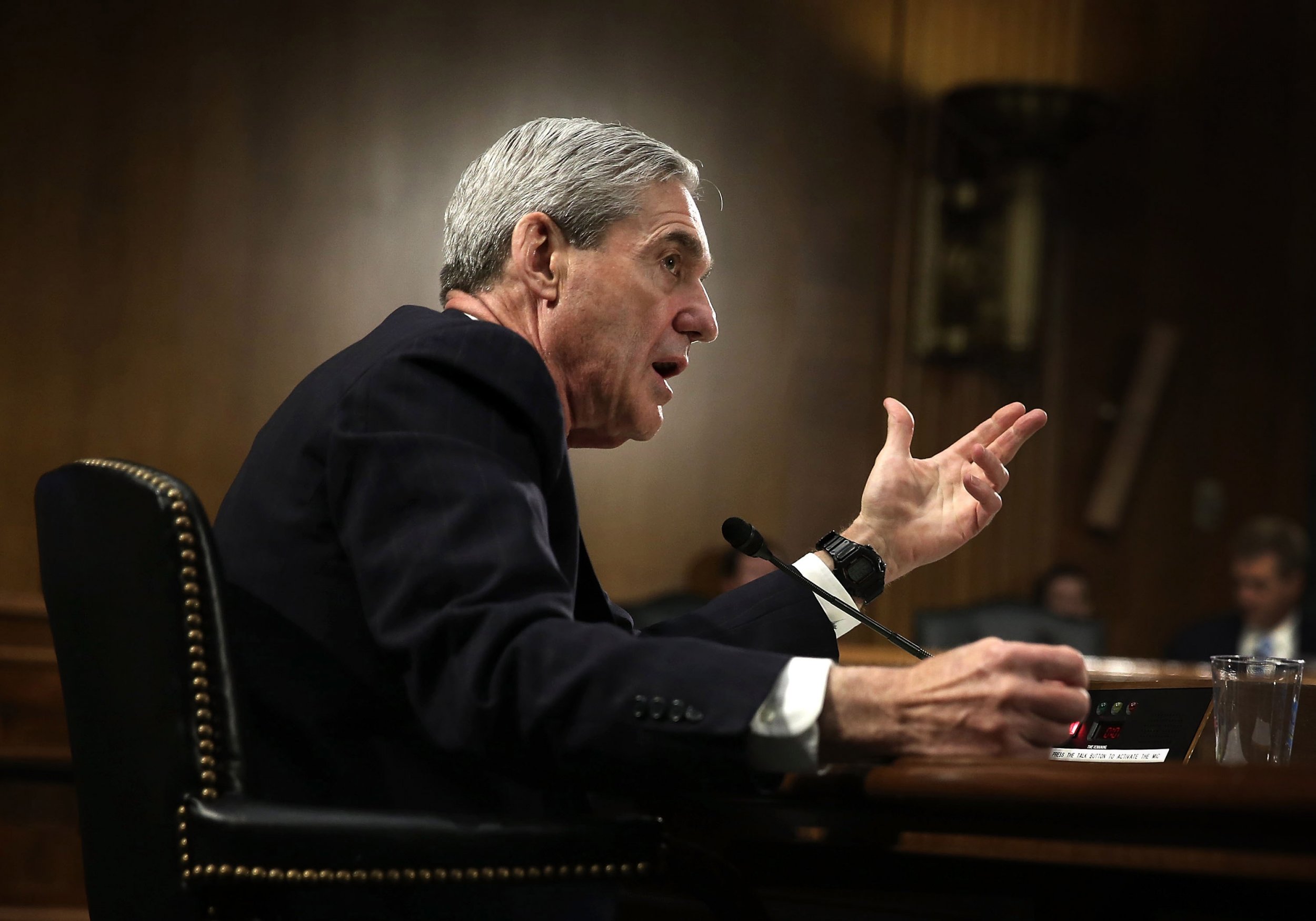
A trove of data including confidential materials from special counsel Robert Mueller's ongoing Russia investigation that were allegedly leaked by Russians in a bid to discredit the ongoing probe were immediately dismissed by the reporter and researcher they were first sent to.
In a court filing on Wednesday, federal prosecutors said that Mueller's office had given the documents to defense attorneys for Concord Management and Consulting LLC, a Russian firm that the special counsel had charged with helping fund efforts to meddle in the 2016 presidential election, according to The Associated Press.
However, hundreds of the files that Mueller's office had shared confidentially were uploaded to a filesharing site, with the link later shared on Twitter.
Prosecutors said that the majority of the files released by the Twitter account were "junk material that has nothing to do with the case," but were included along with real files from Mueller's probe in an apparent bid to discredit it.
Of the 300,000 documents released, an FBI analysis found that only 1,000 of the documents were real, with most of the Mueller documents being "images of political memes from Facebook and other social media" that were posted during the 2016 election by Russian social media troll farm the Internet Research Agency (IRA), which Concord has been accused of funding.
In the October 2018 tweet sharing the files, pro-Russian Twitter account @HackingRedstone, which has since been removed from the social media site, said: "We've got access to the Special Counsel Mueller's probe database as we hacked Russian server with info from the Russian troll case. You can view all the files Mueller had about the IRA and Russian collusion. Enjoy the reading!"
In addition to the tweet, the filing reportedly states that a reporter was also offered access to the leaked materials through a direct message on the social media site the same day.
That reporter was Casey Michel of ThinkProgress, who told NBC on Wednesday that he was immediately skeptical of the trove of data, calling the message he received from @HackingRedstone "ridiculous."
"The DM I got was ridiculous, both in terms of its syntax as well as the types of phrases it used," Michel told NBC News. "It reminded me of the types of language we saw on some of the fake Russian Facebook pages, like when the Russian trolls claimed they were Texas secessionists who were 'in love with Texas shape!'
"Some of the files they sent along did appear legitimate and were some of the things we'd already seen on those fake Twitter or Facebook pages before," Michel noted. "Some of the things were pretty clearly not from the IRA, or at least weren't anything that any other reporters or analysts had ever claimed to be Russian."
Independent disinformation researcher Josh Russell said he was also sent the documents from the @HackingRedstone account, telling NBC that he was "super excited to click the link they posted but then it was just a big letdown."
"It's some galaxy brain stuff they wanted us to believe," Russell said. "They had this grand plan and it all went to hell when me and Casey just lol'd."
Prosecutors said the FBI had determined that the documents had not been stolen from government servers. They said that whoever created the webpage sharing the documents had access to at least some of the materials Mueller's office provided to defense attorneys.
While prosecutors did not accuse Concord of having leaked the materials, they did say that a request from the company asking for access to sensitive new evidence sent to Russia "unreasonably risks the national security interests of the United States."
Concord's owner, Yevgeny Prigozhin, businessman with close ties to Russian President Vladimir Putin, was charged along with his company in an indictment brought by Mueller, in addition to being hit by U.S. sanctions over Russian interference in the 2016 election.
Concord is one of three entities and 13 individuals that have been charged with conspiring to spread disinformation on social media in the lead-up to the 2016 election. Because Concord is the only defendant to have responded to the allegations in court, its attorneys were able to access evidence in the case.
Uncommon Knowledge
Newsweek is committed to challenging conventional wisdom and finding connections in the search for common ground.
Newsweek is committed to challenging conventional wisdom and finding connections in the search for common ground.
About the writer
Chantal Da Silva is Chief Correspondent at Newsweek, with a focus on immigration and human rights. She is a Canadian-British journalist whose work ... Read more





